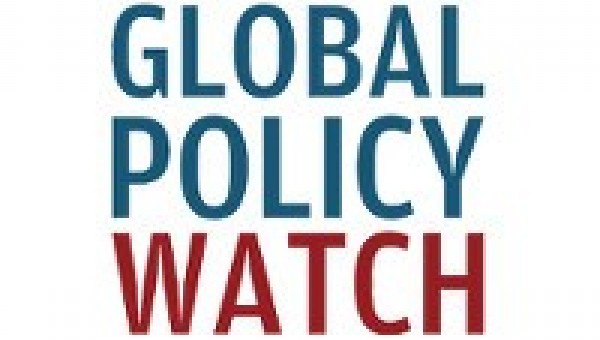News

By Sarah Dayringer & Jasmine Elshear
With climate change front and center as the United Nations Climate Change Conference / COP23 opened in Bonn, Germany, the Australian Mission to the UN hosted a meeting in New York focusing on the impact of climate change. This meeting was part of a series organized jointly with the United Nations University on Preventing Tomorrow Conflicts.
The series tackles various issues that will be arenas in future global conflicts, including: climate change, technology and, cyberspace. It aims at bringing researchers to the UN floor alongside policy makers to discuss the global conflicts of tomorrow and how different actors can work to prevent them. Prevention is center stage in these discussions; as Australian Ambassador to the UN Gillian Bird expressed “prevention is not a priority but the priority” and that “prevention is better than cure.”
The conference was kicked off by Australian Counsellor on Sustainable Development, Humanitarian and Human Rights to the UN, Natalie Cohen. She emphasized that climate change will have deep socioeconomic impacts and that the involvement of women is essential in climate intervention as well as bringing in actors beyond the UN system to help in that effort.
Dr. Malin Mobjork, the head of climate change and risk change at the Stockholm International Peace Research Institute (SIPRI) stated that climate related security risks are “transmitted across time and space.” However, we often “downplay climate change’s role in conflicts.” Dr. Mobjork pointed to the UN system’s key role in preventing climate change’s role in conflicts and emphasized that “risk assessment and management need to be improved.” Moreover, she demanded pro-active actions which include: joint actions between the Secretary-General and the UN Security Council, incentives and strategic leadership, reinforced efforts for peace-building, and an institutional home for climate related security risks in the UN system.
In addressing conflict prevention, Mr. Jamil Ahmad, the head of intergovernmental affairs and Deputy Director of the United Nations Environmental Programme (UNEP), stated that there should be an integrated approach with a human rights guide. He noted that climate change is not just an environmental challenge but a political one. The Intergovernmental Panel on Climate Change (IPCC) has predicted that climate change will become a greater humanitarian issue in the years to come, the UN must work together to build people’s resilience and awareness.
